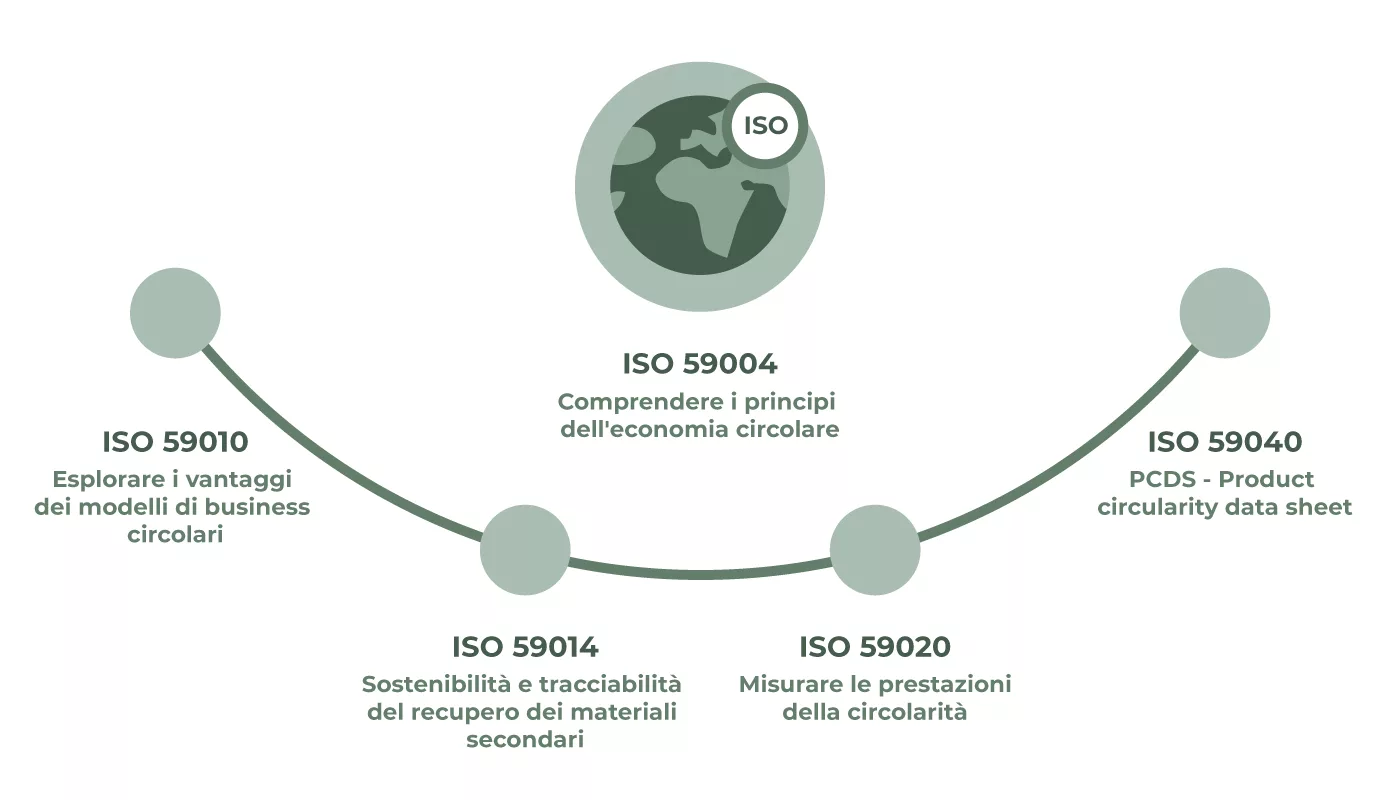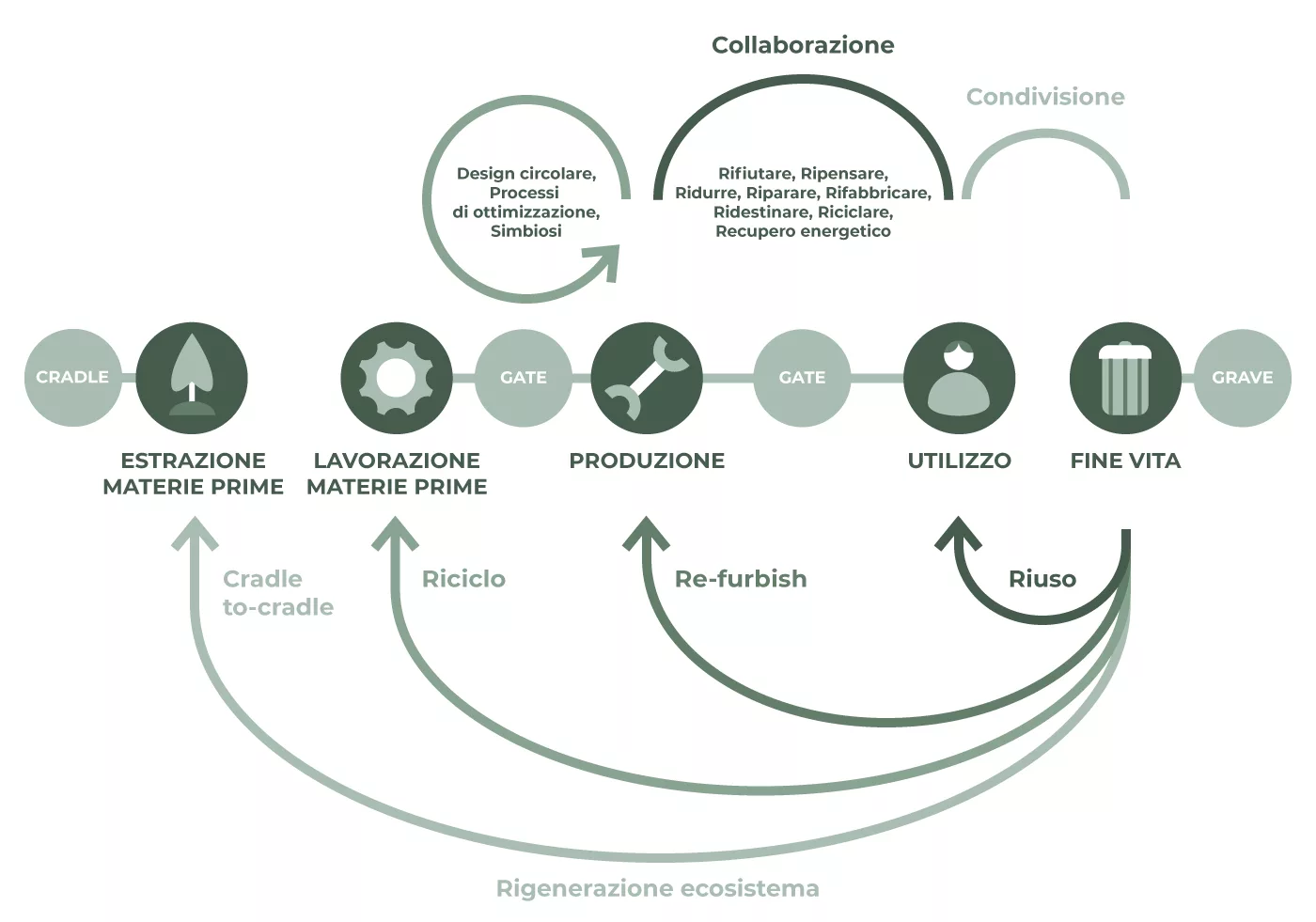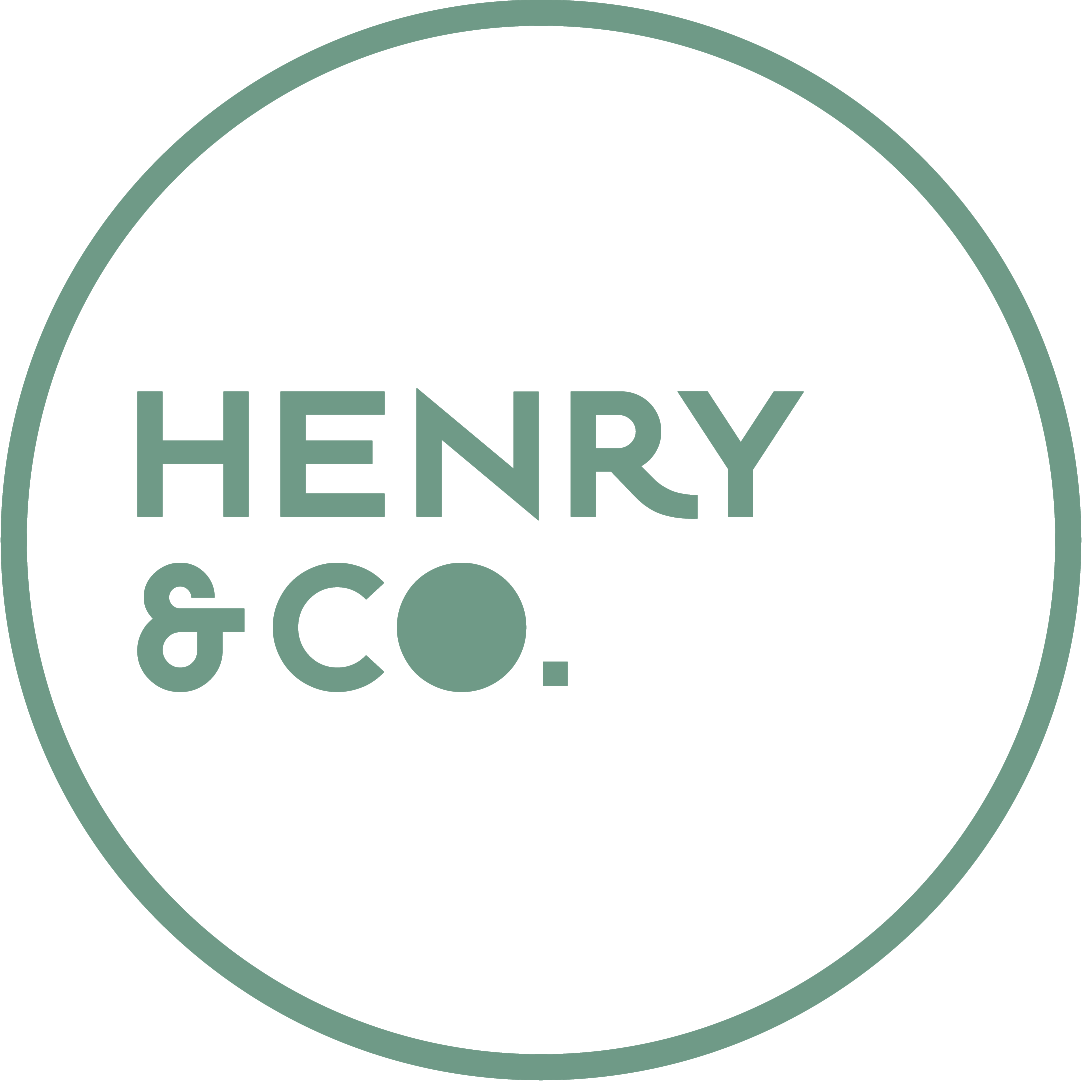Recently, three new ISO standards from the 5900 series (ISO 59004, ISO 59010, and ISO 59020) have been introduced, marking significant progress towards the adoption of circular economy practices on a global scale. Developed with the participation of seventy-five standardization bodies worldwide, these standards provide a clear and comprehensive definition of the circular economy, its principles, implementation methods, and associated business models.
As an entrepreneur, you might be wondering:
- what does each standard define?
- what benefits can I gain?
- do I need to overhaul my business to comply?
- what are the costs and timelines for implementation?
- who can help me with the implementation process?
HENRY & CO., our consultancy firm, is here to help companies adopt these standards, guiding you step-by-step in the transition process towards a circular economy.
What principles of the circular economy does ISO 59004 define?
ISO 59004 is the first to provide a universal definition of the circular economy and establishes 6 fundamental principles such as systems thinking, value creation and sharing, resource management and traceability, as well as ecosystem resilience.
It is structured around a series of priority actions to enhance circularity, including refuse, rethink, procure, reduce, repair, reuse, refurbish, remanufacture, repurpose, recycle, recover energy, and re-extract resources.
ISO 59004 aims to provide public and private actors with the tools to develop sustainable solutions and improve stakeholder relationships while respecting environmental regulations.
How to explore the advantages of circular business models with ISO 59010?
The second standard focuses on analyzing and transforming existing business models, promoting collaboration and industrial symbiosis rather than competition.
It helps organizations set goals for the circular economy, develop strategies, transform business models and value networks, and engage in the review and monitoring of practices.
ISO 59010 offers guidance to adapt to changes in regulations and the market, improve resource efficiency, reduce waste, and align with the Sustainable Development Goals (SDGs).
How to measure circularity performance with ISO 59020?
ISO 59020 establishes a standardized method to evaluate circularity performance within organizations and economic systems. It focuses on key indicators such as resource inflows and outflows, energy and water consumption, and economic impact. These indicators help organizations monitor sustainability-related goals and actions, like reduce, repair, reuse, refurbish, and recycle.
In addition to key indicators, ISO 59020 considers other factors such as emissions, losses, and evaluates the impacts on the social, environmental, and economic scale. This framework is applicable at various levels of the economic system, ranging from regional to inter-organizational, organizational, and product levels, providing a flexible and comprehensive tool to integrate sustainability into daily business practices.

What are the other related ISO standards?
In addition to the newly introduced standards, there are other ISO documents under development that will contribute to the transition towards a circular economy. Among them:
- ISO 59040 Product Circularity Data Sheet: provides basic circularity data for products and aims to improve the efficiency of sharing circularity information and encourage better product circularity performance;
- ISO 59014 Sustainability and traceability of secondary materials recovery: offers principles, requirements, and guidelines to facilitate sustainability and traceability in secondary material recovery activities. This standard also specifies requirements for involving individuals in livelihood activities.
Frequently Asked Questions
What do the new ISO standards on the circular economy define?
The new standards from the 5900 series define the fundamental principles of the circular economy, the transition and implementation of circular business models, and the measurement of circularity performance through specific indicators.
Wasn’t just one standard enough?
Each standard plays a specific role in ensuring an effective transition to the circular economy. ISO 59004 provides the basic principles, ISO 59010 deals with practical implementation in business models, and ISO 59020 focuses on performance measurement.

What advantages can companies gain?
- Adopting more sustainable practices that can reduce operational costs.
- Improving corporate image and acceptance by environmentally conscious consumers.
- Potential access to new markets and customers interested in sustainable products and services.
Do I need to overhaul my company?
Adopting these standards requires the implementation of more efficient resource management practices and the transition to circular business models, but not necessarily a complete overhaul. It is a gradual process that starts with small changes and improves over time.
What are the associated costs?
Implementing these standards may involve initial costs, but it can also lead to significant long-term savings through increased efficiency and waste reduction.
What is the timeline for implementation?
The time required to implement these standards depends on the size and complexity of the organization, as well as the level of existing preparedness.
What tools are needed for measurement?
Monitoring tools and software for data collection and performance analysis, such as Environmental Management Systems (EMS), are useful.
How can I demonstrate results to my stakeholders?
By drafting detailed and transparent sustainability reports that showcase the progress and benefits gained through the adoption of ISO standards. By implementing sustainability communication strategies that include actions like content marketing, PR & press office, and social media management.
Who can help me with the implementation process?
As a consultancy specialized in sustainability, eco-design, and communication, HENRY & CO. can support your company in adopting the new ISO 5900 series standards.
We have already helped companies like Procter & Gamble, Nike Grind, and Decathlon implement the circular economy in their business models. Schedule a call to find out how we can do it with you.
New ISO standards for the circular economy, HENRY & CO. is here for you.
We are the eco-design studio that helps companies throughout the entire transition process towards a circular economy.
FILL OUT THE FORM BELOW FOR A HALF-HOUR FREE CONSULTATION.
